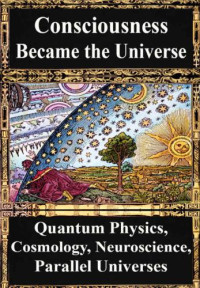- Main
- Society, Politics & Philosophy - General & Miscellaneous Philosophy
- The Evolution of the Sensitive Soul:...

The Evolution of the Sensitive Soul: Learning and the Origins of Consciousness
Simona Ginsburg, Eva JablonkaWhat marked the evolutionary transition from organisms that lacked consciousness to those with consciousness―to minimal subjective experiencing, or, as Aristotle described it, “the sensitive soul”? In this book, Simona Ginsburg and Eva Jablonka propose a new theory about the origin of consciousness that finds learning to be the driving force in the transition to basic consciousness. Using a methodology similar to that used by scientists when they identified the transition from non-life to life, Ginsburg and Jablonka suggest a set of criteria, identify a marker for the transition to minimal consciousness, and explore the far-reaching biological, psychological, and philosophical implications.
After presenting the historical, neurobiological, and philosophical foundations of their analysis, Ginsburg and Jablonka propose that the evolutionary marker of basic or minimal consciousness is a complex form of associative learning, which they term unlimited associative learning (UAL). UAL enables an organism to ascribe motivational value to a novel, compound, non-reflex-inducing stimulus or action, and use it as the basis for future learning. Associative learning, Ginsburg and Jablonka argue, drove the Cambrian explosion and its massive diversification of organisms. Finally, Ginsburg and Jablonka propose symbolic language as a similar type of marker for the evolutionary transition to human rationality―to Aristotle's “rational soul.”
該文件將通過電報信使發送給您。 您最多可能需要 1-5 分鐘收到它。
注意:確保您已將您的帳戶鏈接到 Z-Library Telegram 機器人。
該文件將發送到您的 Kindle 帳戶。 您最多可能需要 1-5 分鐘就能收到它。
請注意:您需要驗證要發送到 Kindle 的每本書。 檢查您的郵箱是否有來自 Amazon Kindle 的驗證郵件。
最常見的術語
相關書單
















































































































































































































































 Amazon
Amazon  Barnes & Noble
Barnes & Noble  Bookshop.org
Bookshop.org  轉換文件
轉換文件 更多的搜索結果
更多的搜索結果 其他特權
其他特權 
![Eva Jablonka & Marion J. Lamb & Anna Zeligowski [Jablonka, Eva & Lamb, Marion J. & Zeligowski, Anna] — Evolution in Four Dimensions: Genetic, Epigenetic, Behavioral, and Symbolic Variation in the History of Life](https://s3proxy.cdn-zlib.se/covers200/collections/userbooks/68805f26341dbbfa42d8f23fc94a583a2e44ffa3833bba00c4db99ce947b4ae1.jpg)












































